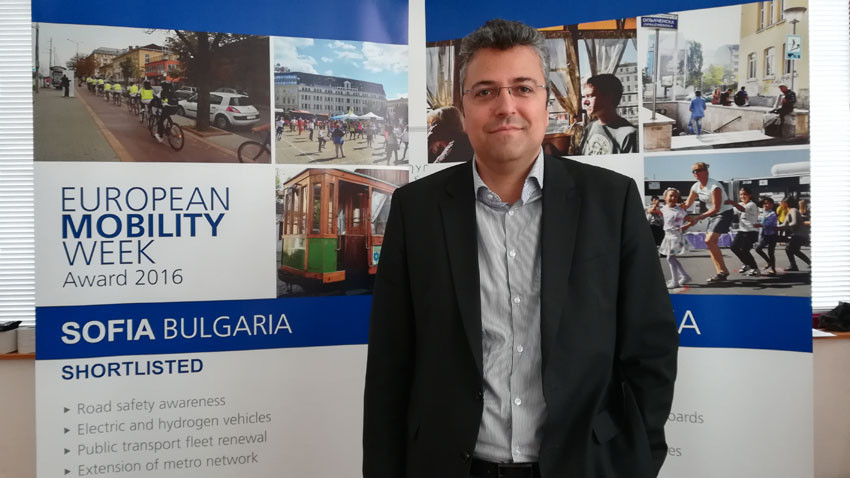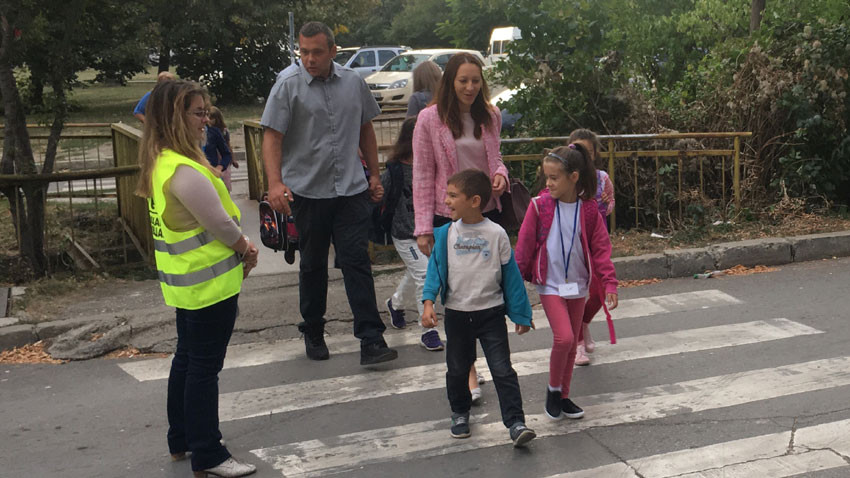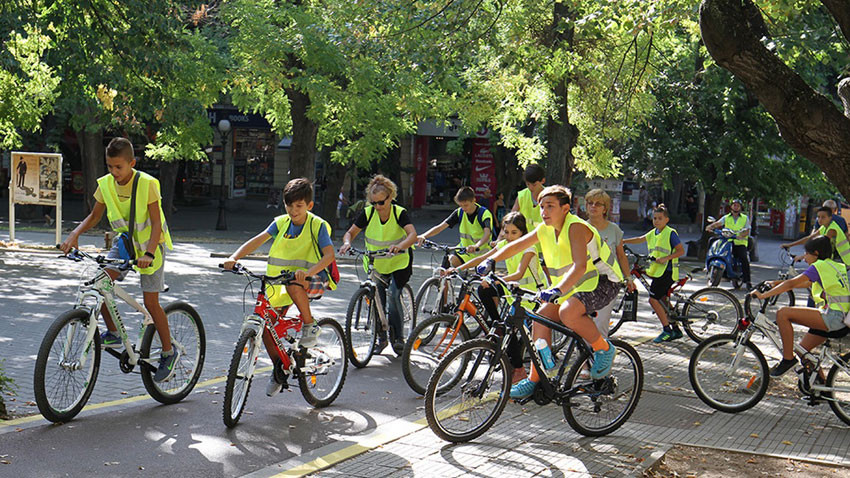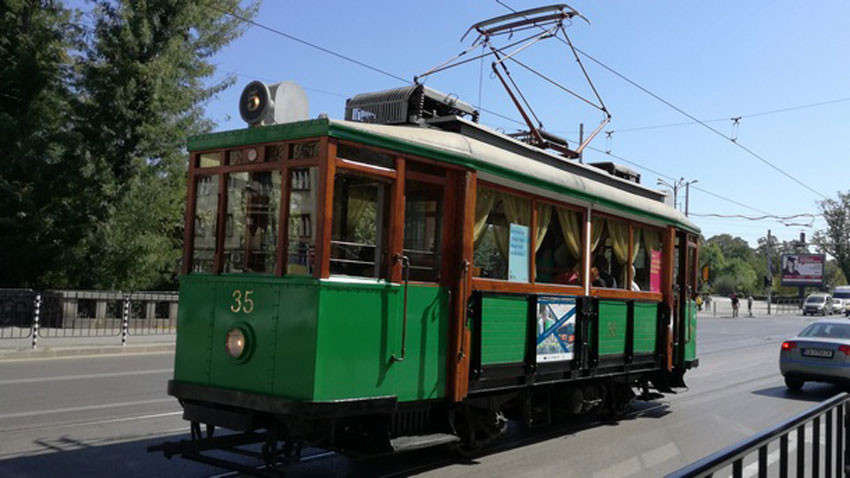The European Commission launched for the 17th time its European Mobility Week campaign. It runs from September 16 to 22 annually with the aim to improve quality of life by promoting clean mobility and sustainable urban transport. In 2017 a record high number of 2,526 towns from Europe, the USA, Japan, etc, took part at the campaign. Bulgaria was represented by 39 municipalities, the Bulgarian Ministry of Environment and Waters told Radio Bulgaria. The Environment Ministry is a coordinator of the initiative in Bulgaria. EU Transport Commissioner Violeta Bulc has declared 2018 the “Year of Multimodality” which has defined the theme of this year’s European Mobility Week: “Mix and Move!” Multimodality encourages people to see how their daily travel needs can be met more efficiently, more enjoyably and cost-effectively by combining different transport modes.
The Sofia Municipality, the Urban Mobility Center, many non-governmental organizations and civic initiatives joined again the European Mobility Week initiative. This year’s European Mobility Week includes events and campaigns aimed at promoting environmentally-friendly movement and alternative transport modes – bicycle, walking, public transport, etc. What else the citizens and guests of Sofia can expect during the European Mobility Week?

This year we focus more on children, Metodi Avramov from the Urban Mobility Center told Radio Bulgaria. We recreate real traffic conditions to the children in the kindergartens, so they can acquire the relevant skills and get used to the transport modes in the city. We have also prepared games for older children. They can also join the bicycle tour on September 22 organized for the second consecutive year together with the Embassy of Denmark. The Urban Mobility Center provides bicycles for the tour, but people can also participate with their own bicycles as well. The tour will start from one of Sofia’s biggest parks and the route will cross the central part of the Bulgarian capital

Children can also share their view about mobility and public transport through paintings. The kids have very creative thinking and these paintings are even shown in Brussels, because after each European Mobility Week the cities can apply for the European Mobility Week Award. The children’s drawings are part of the components that show our commitment to this topic and each year they are assessed highly in Brussels, Metodi Avramov specifies.

The cities must comply with three conditions in order to host the European Mobility Week: to implement sustainable urban mobility measures, to organize events related to the European Mobility Week and launch Car Free Day which encourages walking or human powered travel (the use of bicycles) in the central part of the city. The Sofia Municipality has met these conditions and in 2015 and 2016 was among the ten cities which applied for the European Mobility Week Award. We hope that this year Sofia will climb the ranking, Metodi Avramov said.
The retro tram is again part of the entertainment during the European Mobility Week. The culmination of the campaign will be on September 22 (the Car-Free Day), when Sofia center closes for automobile traffic.

In 2016 and 2017 a mobile laboratory of the Executive Environment Agency measured the quality of the air during the Car-Free Days and as we all expected the air was cleaner, Metodi Avramov commented. The European Mobility Week already yielded results, because the number of people using bicycles or public transport went up. The European Mobility Week campaign is held within the frameworks of one week only. It can put the emphasis on the topic, but the efforts must be year-round.
English version: Kostadin Atanasov
Photos: Desislava Semkovska and libraryHelp me do it myself, get me in touch with nature, take care of my immunity – these are the principles that the teachers at the Bulgarian kindergarten "Hristo Botev" in the Slovak capital Bratislava follow. The kindergarten has been operating since 2009..
"The place in France where we draw together the future of our children in Bulgarian" - this is how Yaneta Dimitrova described her workplace - the Bulgarian Sunday School "Ivan Vazov" in Paris a year ago in a post on a social network. It is one of the 396..
21 February is International Mother Language Day, first proclaimed as such by UNESCO and later adopted by the UN General Assembly. The right to study and to speak one’s mother tongue, or native language, is a basic human right and a civil right..

+359 2 9336 661
